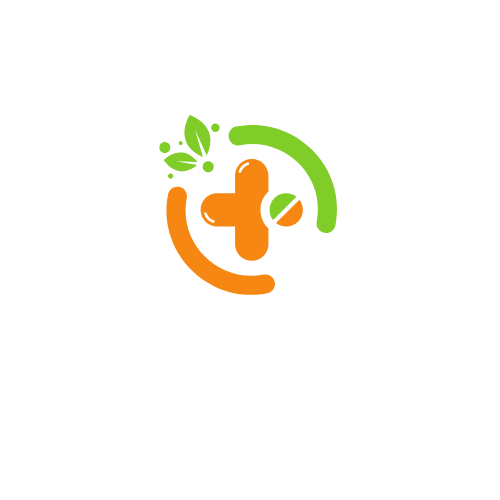In the wild world of love, relationships can feel like a rollercoaster ride—thrilling, dizzying, and sometimes downright confusing. When communication breaks down or misunderstandings pile up, it’s easy to feel like you’re stuck on the track. That’s where relationship coaching swoops in like a superhero in a cape, ready to save the day.
Table of Contents
ToggleWhat Is Relationship Coaching?
Relationship coaching serves as a supportive resource for couples facing challenges in their partnerships. This coaching process helps individuals navigate emotional difficulties and enhance their connections.
Definition and Overview
Relationship coaching focuses on improving communication and resolving conflicts. Clients gain clarity about their feelings and desires. Coaches provide guidance tailored to specific relationship dynamics. They empower clients to set actionable goals and develop effective strategies for healthier interactions. Trust and respect form the foundation of these coaching relationships. Coaches facilitate communication exercises and create a safe space for open dialogue.
How It Differs from Therapy
Relationship coaching differs from therapy in several key aspects. Coaches primarily concentrate on the present and future, whereas therapists often explore past experiences. Coaching emphasizes actionable strategies to achieve relationship goals. Therapy typically addresses deeper emotional issues that may require long-term intervention. Coaches generally focus on skill development, while therapists delve into psychological patterns. In essence, relationship coaching aims to enhance relational skills, while therapy addresses mental health concerns.
Benefits of Relationship Coaching

Relationship coaching offers several benefits that significantly enhance personal connections. Individuals can develop vital skills that transform their relationships through expert guidance.
Improved Communication Skills
Improving communication skills stands as one of the primary advantages of relationship coaching. Coaches provide clients with techniques for expressing thoughts and feelings clearly. Partners learn to listen actively, fostering a deeper understanding of each other. Enhanced vocabulary replaces misunderstandings with clarity. Training emphasizes using “I” statements to decrease blame and increase empathy. Practicing these skills leads to more meaningful conversations and stronger bonds. Regular sessions create a comfortable environment where individuals express challenges openly, encouraging growth. Ultimately, improved communication fosters trust and nurtures lasting connections.
Enhanced Conflict Resolution
Enhancing conflict resolution constitutes another key benefit of relationship coaching. Coaches teach clients strategies for managing disagreements constructively. They emphasize remaining calm during conflicts, which prevents escalation. Understanding personal triggers allows individuals to respond thoughtfully instead of reacting impulsively. Exploring common ground becomes easier as the focus shifts from winning arguments to finding solutions. This approach promotes collaboration and teamwork in resolving issues. Relationship coaching encourages individuals to view conflicts as opportunities for growth. Improved resolution skills lead to stronger partnerships. Relationships thrive when both partners feel heard and valued.
The Coaching Process
The coaching process involves several structured steps to enhance relationship dynamics. Each stage focuses on specific outcomes tailored to individual needs.
Initial Consultation
The initial consultation serves as the foundation for relationship coaching. During this session, the coach gathers background information about the individuals and their relationship. Clients voice their concerns, goals, and expectations. Trust begins to build at this stage, creating a safe environment for open communication. Coaches use this information to identify core issues and assess compatibility with their approach. Understanding each person’s perspective is crucial for future sessions.
Goal Setting and Action Plans
Goal setting plays a vital role in the coaching process. Coaches help clients articulate specific, measurable objectives that reflect their desires. These goals could involve improving communication skills or enhancing emotional intimacy. Following that, action plans are developed, providing a roadmap for achieving these objectives. Both accountability and commitment are emphasized, ensuring progress is tracked effectively. Regular evaluations take place to adjust strategies as needed. This comprehensive approach facilitates meaningful change, fostering healthier interactions.
Finding the Right Relationship Coach
Choosing a suitable relationship coach involves careful consideration. Potential clients should prioritize qualifications and experience, as these factors can greatly impact coaching effectiveness.
Qualifications and Experience
Seek coaches who possess relevant credentials. A background in psychology, counseling, or social work enhances a coach’s ability to understand relationship dynamics. Many successful coaches hold certifications from recognized coaching organizations, ensuring they adhere to high standards. Experience working with diverse couples or individuals often signifies a coach’s adaptability. Inquire about the number of clients served, as a robust clientele indicates expertise. Coaches familiar with various relationship styles, including same-sex or multicultural couples, demonstrate an inclusive approach.
Questions to Ask Potential Coaches
Prepare thoughtful questions to assess a coach’s compatibility. Start by asking about their coaching philosophy and methods used in sessions. Understanding their approach provides insight into the coaching journey. Investigate their experience with similar relationship issues, as this relevance can enhance the coaching process. Explore their success stories or client testimonials to gauge effectiveness and satisfaction. Finally, clarify logistical aspects like session frequency, duration, and fees, ensuring the coaching process aligns with personal needs and financial considerations.
Relationship coaching offers a valuable path for those seeking to enhance their connections and navigate the complexities of love. By focusing on communication and conflict resolution, individuals can cultivate deeper understanding and empathy within their partnerships. The structured approach of coaching not only provides clarity but also empowers clients to set actionable goals that lead to meaningful change.
Choosing the right relationship coach is crucial for a successful journey. With the right guidance and support, individuals can transform their relationships into healthier and more fulfilling experiences. Embracing relationship coaching could be the key to unlocking a stronger bond and a brighter future together.

